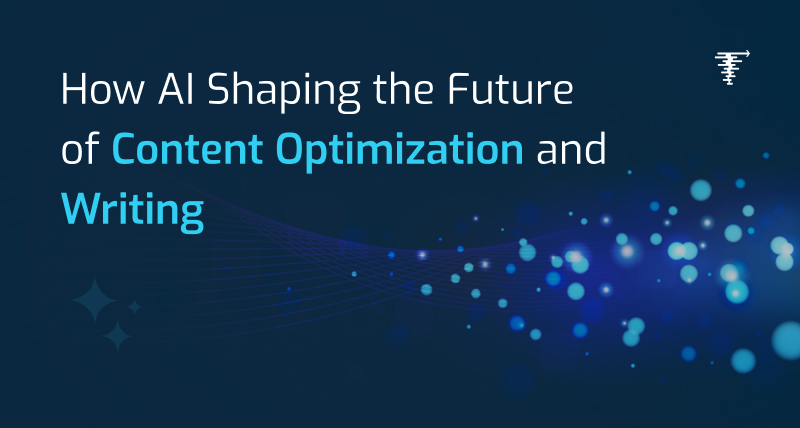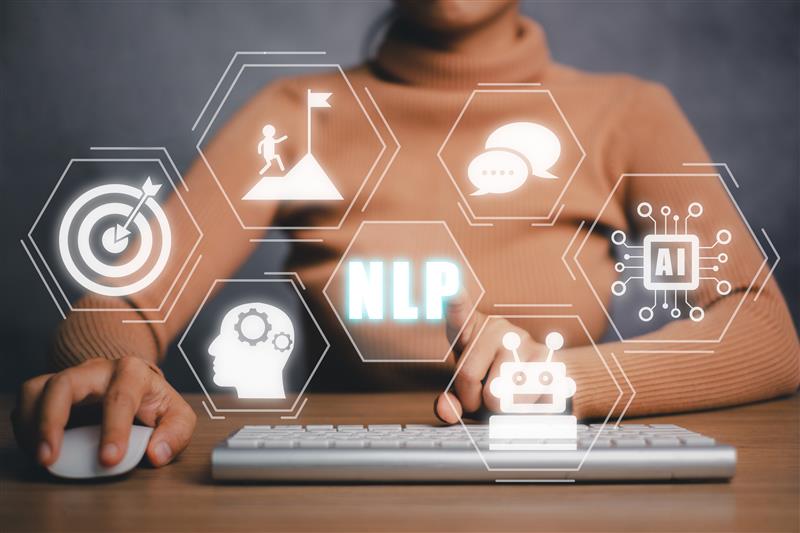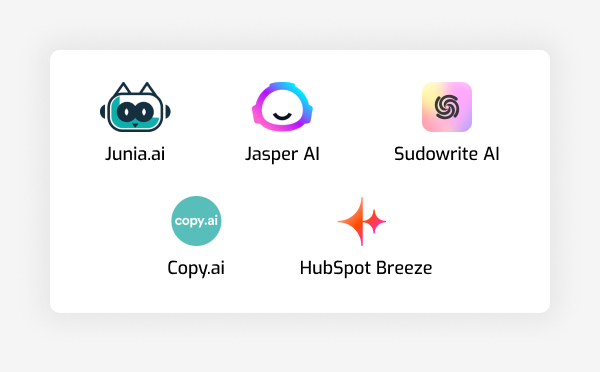

What's the first thing that comes to your mind when thinking about AI content writing? Does it provide user-generated content that aligns with your brand tone and goal?
The content remains the king in a rapidly evolving digital landscape. What would happen if the king got a good high-tech makeover? Let's talk about rising Artificial Intelligence (AI), which actually transformed everything while creating and optimising content. AI will be integrated into the content marketing fabric by 2025, changing the game for every writer, marketer, and businessman (Forgive science fiction).
More than 80% of marketers believe that AI will soon substantially impact content creation and by leveraging AI-powered tools, they are already saving businesses up to 50% of their time spent on data analysis. Here's the future of content writing in the time of AI-fueled optimisation.
This blog post walks you through how AI revolutionising all types of content created and those AI tools everyone should know within 2025 and beyond this year.
AI in content marketing and AI writing tools seems to cause some discomfort. We have invariably tied creativity with the human mind, and thereby, generating content by machines seems to haunt our thinking. It is generally realised that human creation is indeed a reflection of our unique viewpoints and experiences.
However, AI in content creation should not be a threat, but an evolution. Where the industrial revolution automated labor-intensive, mundane work, and computers streamlined computational processes, it is now time for AI to come and augment the creative process.
Hyper-personalise your content with AI In 5 ways. Read on to know more about how AI helps content marketers here.

Natural Language Processing (NPL) enables AI to write and Large Language Model (LLM) in which the AI model is designed to meet users' expectations. Artificial intelligence teaches narrative structures, stylistic patterns and even figures of speech by sifting through massive amounts of human-constructed material. This allows AI to produce articles, and even poetry, that can be nearly impossible to distinguish from their human-created counterparts. Major media companies, including The New York Times and Reuters, are already using AI for content writing and formulaic stuff.
There is surprisingly creative AI-generated content that is formulaic. This kind of content may be useful but lacks depth and originality compared to human-generated work. As AI advances, we will see a widening gap between formulaic, AI-generated content and high-quality, human-driven content.
The future of content marketing will be collaborative, where humans use AI writing tools to enhance their efficiency and output while retaining control over the creative direction and core messaging.
AI can critically analyse such a massive chunk of data concerning audience preferences and find trending topics to personalise at scale. This means such marketers will make highly targeted campaigns that resonate with parts of their audience, thus maximising every form of engagement and ROI. AI content optimisation will become an integral part of every successful content strategy.
For instance:
If you want to write a blog using AI, you can ask for the primary, secondary, and long-tail keywords, incorporate credible statistics, target audience and define your brand voice to AI for generating humanised content. Giving the right prompts to AI tools gives you the finest output which needs little to no tweaks. This will not only save your brainstorming and research time but also improve your efficiency while boosting productivity.
Related Blog: HubSpot's ChatSpot.ai And All That You Need to Know About It
Although AI capabilities are impressive, humans are the original drivers of creativity. Artificial intelligence excels in information processing and identifying patterns but lacks human creativity and emotions. Human beings alone are capable of formulating original ideas and infusing content with emotions and meaning. AI content creation depends on the input and guidance of human creators. It is a powerful tool, but it's a tool, nonetheless.

A recent survey revealed by Gartner predicts that by 2025, 30% of new IT spending will be on AI, with a strong focus on data analytics. This clearly shows how rapidly companies are shifting towards AI for research and content curation. Here’s the 5 most helpful AI writing tools that will transform your writing game.
Junia helps to develop marketing copy and content by understanding your brand and targeted audience. It creates a wide variety of humanise content formats, ranging from ad copy to writing blog posts, to increase engagement and conversions.
This writing assistant allows users to create any kind of content, be it a blog post, marketing copy, or even creative stories. Jasper has templates and recipes for easier and more streamlined writing.
It breaks the writer's block and comes up with innovative ideas. One can get more plot twists and character descriptions to enhance the overall narrative.
Great tool for generating marketing copies, website content, and every other business text. It can automate the entire process of copying and making quality content.
This is part of the larger family of HubSpot AI tools that assist in crafting marketing emails and other content types within the HubSpot ecosystem. It uses AI to personalise and optimise content to ensure better performance for campaigns.
Read Also: 8 Key Insights from Mastering the Art of Content Marketing
AI is already shaping the future of content creation; it's no longer a question of if it will. Rather, the real point at which to ideate is how we become used to this new reality. If some jobs may not be required for writing, the specifications of creativity and strategic insight remain. The future of AI content writing will be determined by the symbiosis of human ingenuity.
Hereafter, this guilty pleasure acts as a tool that will instill exceptional efficacy, personalisation, and effect. The next best-selling novel may, after all, co-write itself between a human author and an AI assistant in a fashion that'll push the edge of creativity and storytelling into ways we can only imagine today.